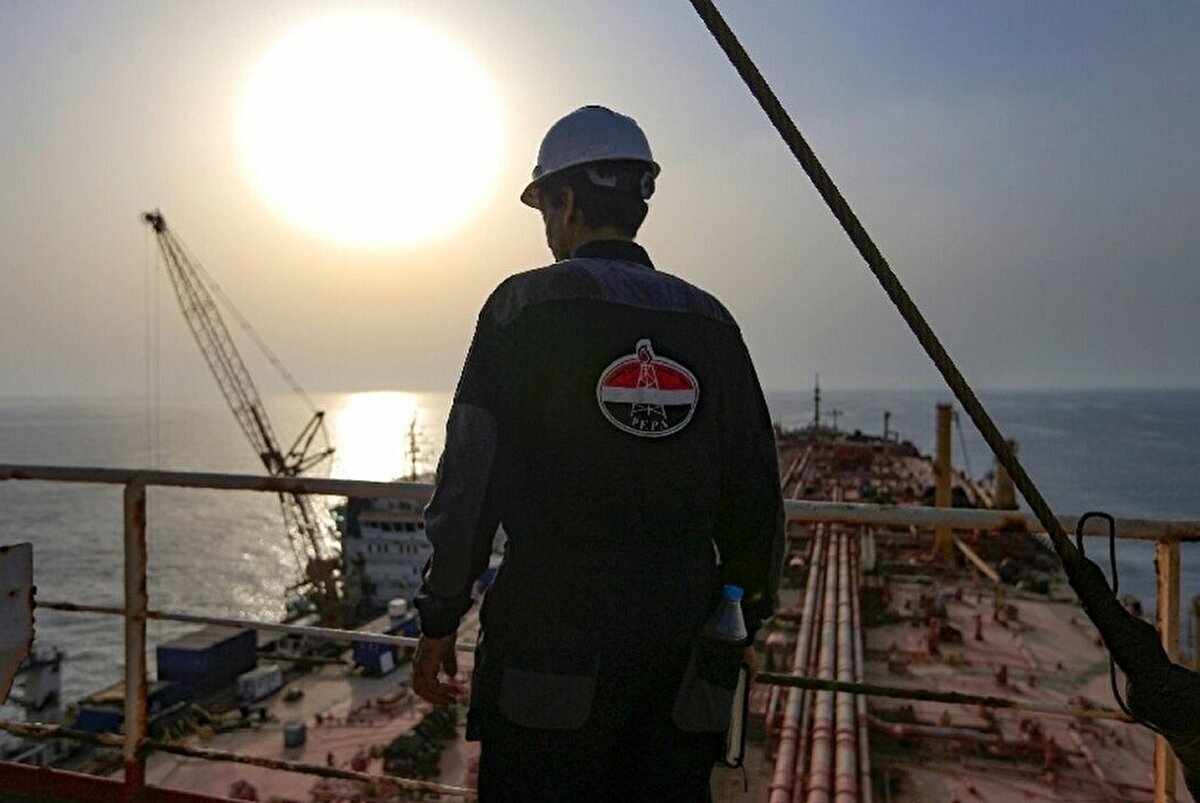Massive Oil Spill in the Red Sea
TEHRAN (Defapress) - While the ongoing U.S. attacks and aggressions against military and civilian sites and infrastructure in Yemen continue, Yemeni officials have warned of a massive oil spill in the Red Sea following repeated and sustained American attacks. This is a serious and urgent alarm, indicating the deteriorating environmental condition of Yemeni ports and the Red Sea.

RT Arabic reported urgently yesterday that Yemeni officials warned of a large-scale oil spill in the Red Sea due to recent U.S. attacks on the Ras Isa oil port in Hodeidah Governorate. This indicates significant damage to the oil facilities at this Yemeni port and a constant risk of oil leaking into the Red Sea.
Jamal Amer, Yemen’s Foreign Minister, stated in a letter to the United Nations that the U.S. has carried out nearly 1,000 airstrikes against Yemen, targeting dozens of civilian infrastructures, including ports, airports, farms, healthcare facilities, water reservoirs, and historical sites. Among the latest of these crimes was the targeting of the Ras Isa port, which resulted in the martyrdom of 80 civilians and the injury of 150 others.
In his letter to the UN, Yemen’s Foreign Minister wrote that these attacks have destroyed the port’s civilian infrastructure and raised the possibility of large quantities of petroleum derivatives leaking into the Red Sea. Additionally, the deterioration of oil infrastructure and lack of proper maintenance due to Yemen’s civil war and economic sanctions have exacerbated the risk of an oil spill.
On the other hand, an oil spill in the Red Sea poses dangerous environmental consequences for the region’s sensitive ecosystem. The Red Sea is highly vulnerable environmentally and economically due to its coral reefs, high biodiversity, and its role as a major global trade route.
Another critical issue is that oil and its derivatives can easily spread in water, forming a layer on the surface that prevents oxygen from reaching marine life. This can lead to the death of fish, seabirds, and other wildlife species.
An oil spill in the Red Sea is also a severe threat to coral reefs. The Red Sea’s coral reefs, which are among the richest ecosystems in the world, are highly vulnerable to oil pollution. The destruction of these reefs disrupts the regional food chain, causing long-term and irreversible damage to the Red Sea’s marine environment.
This is not all; the Red Sea is one of the world’s most important oil and gas transit routes, with about 12-15% of global traffic passing through the Suez Canal. An oil spill and disruption in this route could lead to consequences such as rising oil and gas prices, global trade disruptions, and political tensions.
Furthermore, published research indicates that a large-scale oil spill could shut down a key port like Al-Hodeidah, cut off running water for 8 million people, and halt up to 85% of fishing activities in the region within weeks. Additionally, an oil spill could destroy fish stocks and endanger the livelihoods of millions.
In this context, it must be said that regional diplomacy plays a crucial and vital role in preventing such incidents. Reducing geopolitical tensions through negotiations and ceasefires could prevent the recurrence of such events. The UN’s role in mediating between the involved parties, particularly Ansar Allah and the Western coalition, is key.
Finally, the massive oil spill in Yemen’s Ras Isa port is a wake-up call for the international community, highlighting the close connection between environmental, economic, and geopolitical issues. This incident not only threatens the fragile ecosystem of the Red Sea but could also impact global trade and the livelihoods of millions.
